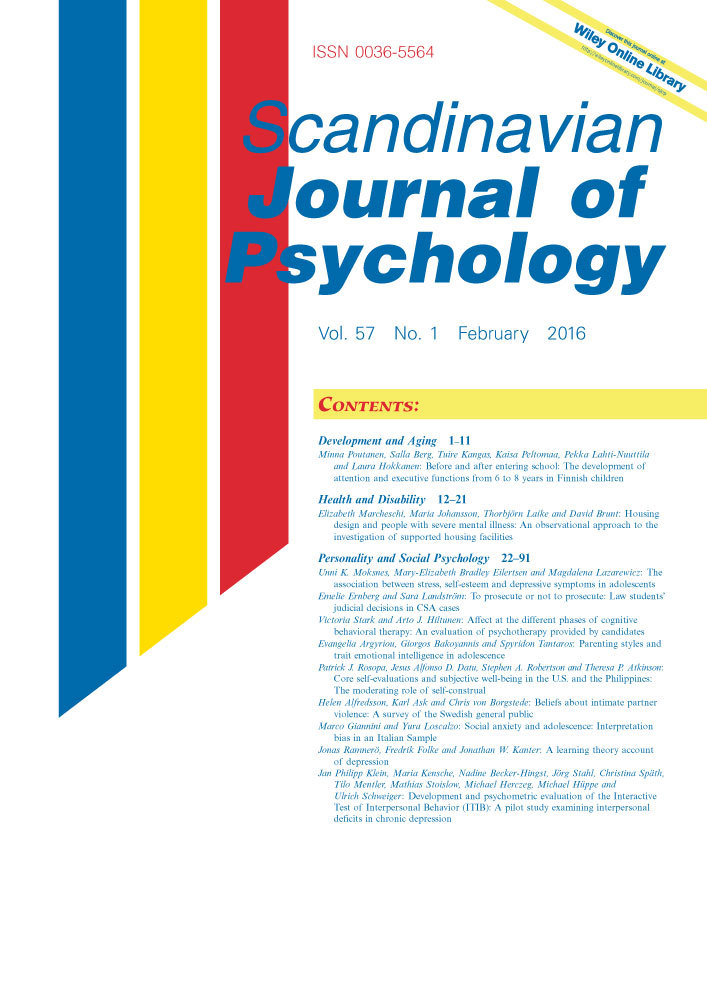To prosecute or not to prosecute: Law students' judicial decisions in CSA cases
Abstract
Child sexual abuse (CSA) investigations are complicated and few cases are prosecuted. The aim of the present study was to investigate judicial decisions in CSA investigations. Seventy-one law students (42 females, 29 males) read a vignette depicting a CSA investigation, assessed the complainant's and the accused's credibility, and if the case should be prosecuted or not. The participants were assigned to one of four conditions defined by a 2 (evidence: high probative value vs. low probative value) × 2 (complainant demeanour: emotional vs. neutral) factorial design. Females assigned higher credibility to the complainant than did males and males assigned higher credibility to the accused than did females. Emotionality, but not evidential value, affected credibility judgements: Females believed less in the suspect when the child behaved in an emotional manner. Most participants (94.4%) thought that the case should be prosecuted, though only 73.2% believed that prosecution could be corroborated. Corroboration of prosecution was affected by evidential value, but not emotionality. The results indicate that the behavior of alleged crime victims might affect males and females differently, which in turn could lead to biased judicial decisions in CSA investigations.




